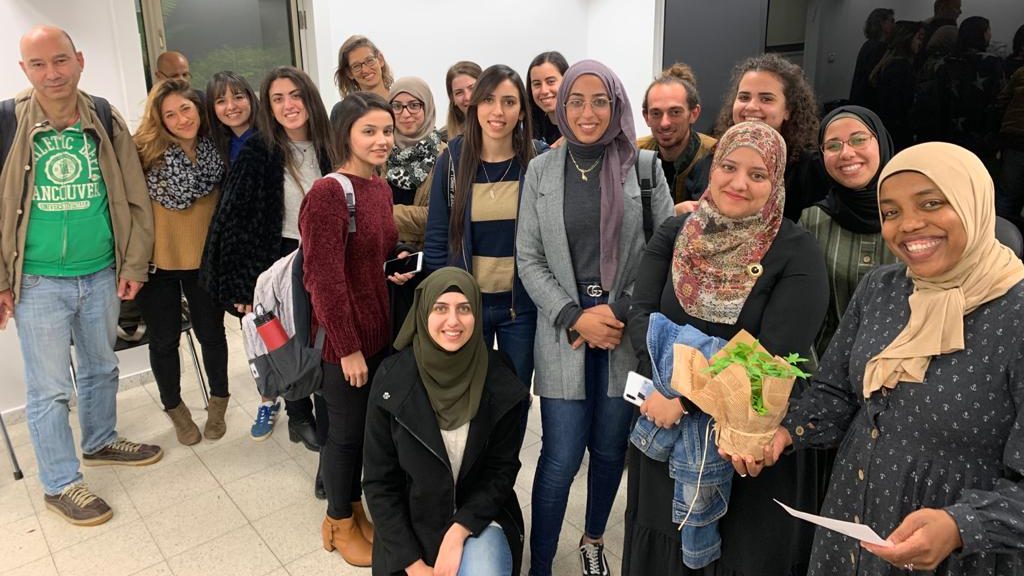Academic dialogue course at Rupin college concluded
The 2019 academic course at Rupin College, which explored the Jewish-Arab conflict through a mixed Jewish-Arab dialogue-encounter group and theoretical study, has just ended. The course was directed by Prof. Efrat Ben-Ze`ev of Rupin College, and facilitated Roaz A`amer and Tal Kulka of the School for Peace.
Below are Tal Kulka’s impressions following the last meeting of the course, in which the participants visited Kibbutz HaMa’apil and Qaqun village:
In a beautiful valley between orchards and fields,
Between Kibbutz HaMa’apil and Qaqun Village,
Between historical events and present day life,
Between the rain that finally came and the sun that broke through after it
We met Maytal Strul and her mother Ruthie Strul who led along kibbutz paths and through stories of three generations.
The water tower, the old and new houses, the kindergarten junkyard playgrounds, the well-kept kibbutz gardens, the members’ club, the volleyball team’s trophy cabinet, the armored truck and the bell, memorial to times past, a group of toddlers, archaeology buffs, shrubs and snails,
The far and near past mixed with the present and the future.
Maytal shares with sincerity and honesty the process of “disillusionment” she went through where she found and taught herself parts of history that were “stolen” from her. And beside her, her mother carries her coat and takes care of her refreshments and chairs for everyone.
She tells in a matter of fact and laconic way, under which there are both currents of pride and deep impressions left by troubles and pain, of the distant and imminent history of the place where she has always lived.
And from HaMa’apil to Qaqun.
A surviving single well, a monument to the Alexandroni Brigade fighters killed in the June 1948 battle, a harrowing walk among the remains of a fortress, a view of Tulkarm, Arabic music playing from a nearby picnic.
And Noor Abu Ras, who tells about Qaqun, the village of her great-grandmother, which was and is no longer. And for shards of memories and stories she tried to glean from her grandmother and father. And about her grandmother’s stubborn silence and refusal to come to her birthplace since that war.
The encounter with these four women in their hometowns (the three we met and the fourth who was powerfully present in her absence and silence) was heart-expanding to me. My heart went out to the four of them with identification, with curiosity, with great appreciation and thanks. Each carries the burden of conflict and carves its own unique way among the people, place, generation and family to which she was born. I left this morning with hope and joy at these women living here among us, shaping their way with determination and courage, and in the process also changing our common landscapes and ways.
Tal Kulka

